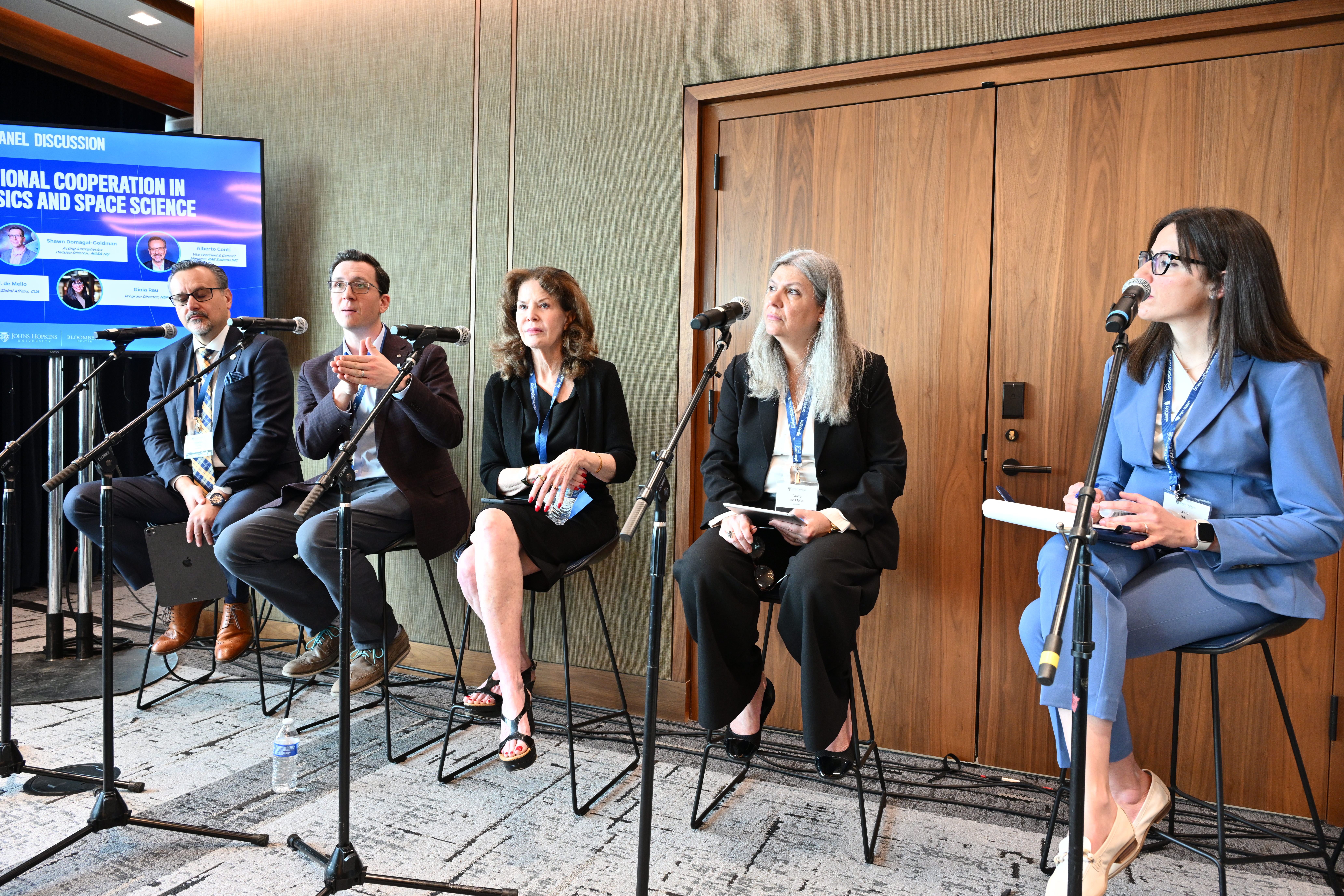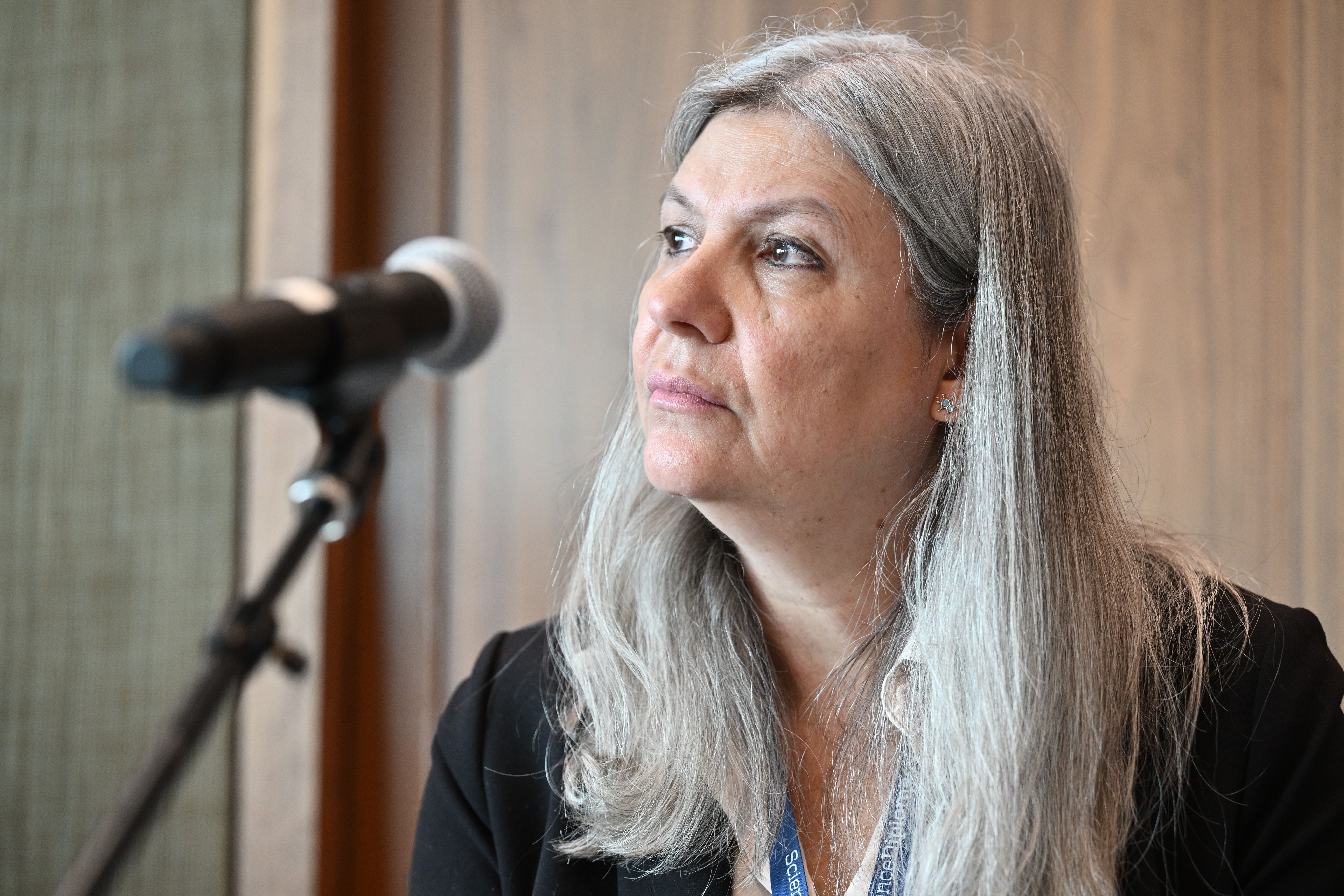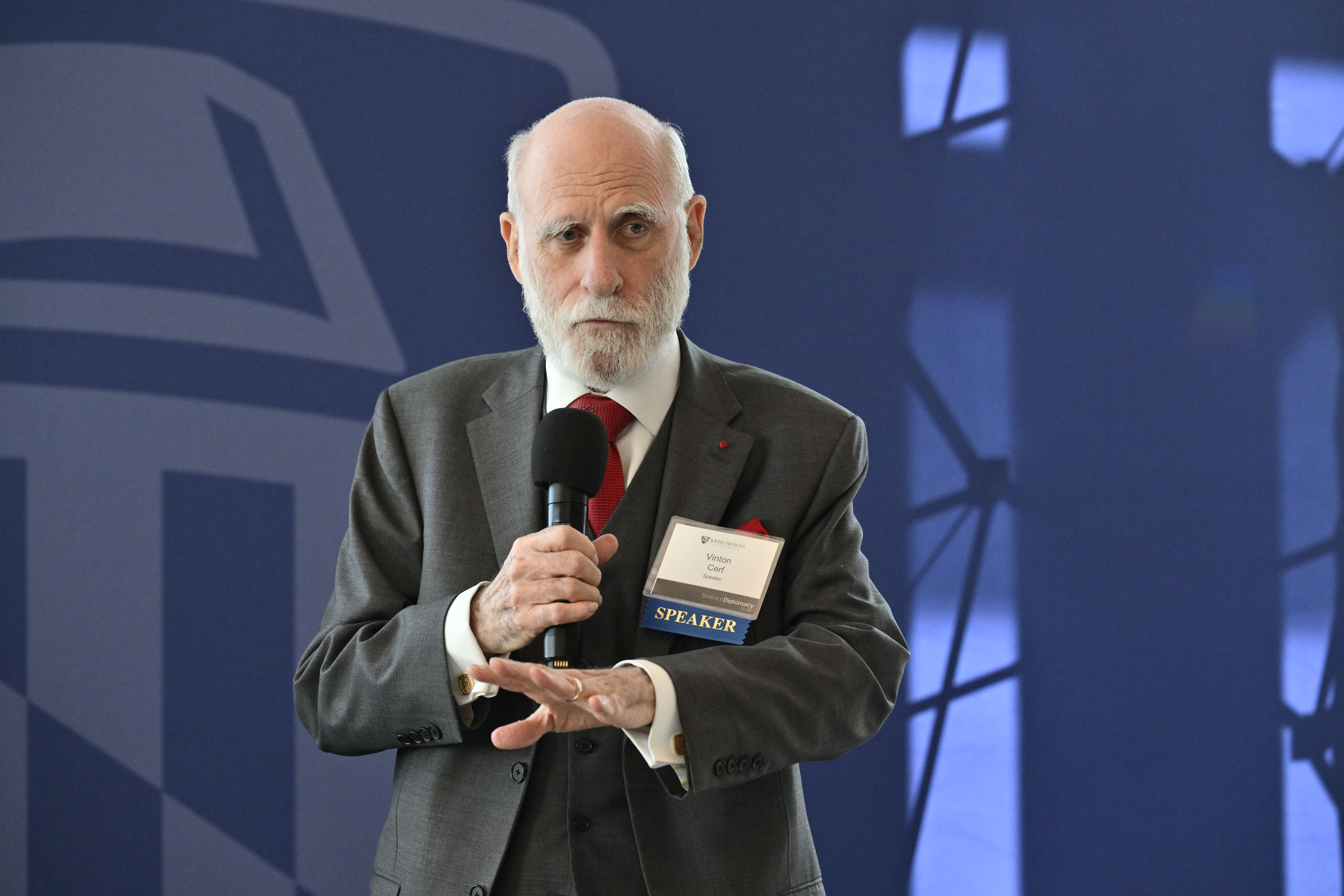5 expert insights on the future of space diplomacy
Leaders from NASA, Google, and international space agencies shared their excitement and advice for the future of space exploration

Space exploration, long a government-led endeavor—from the early Apollo missions through the celebrated Space Shuttle program—has been transformed in recent years into a cross-sector collaboration between academia, government, industry, and others. This shift is changing which missions we pursue and how we continue to explore space.
World leaders in space, from NASA experts to embassy officials, gathered for the Johns Hopkins Science Diplomacy Summit 2025 at the Hopkins Bloomberg Center to explore the advancements and efforts shaping the future of space diplomacy, space exploration, and space policy. Here are the top things we heard from them.
On the shifting role of the private sector in space exploration
“We have an opportunity here to fundamentally change the paradigm where industry is not just a provider of a tool, but it’s really a partner.”
— Alberto Conti, vice president and general manager of Civil Space for Space & Mission Systems at BAE Systems, Inc.
Private companies have historically supplied systems for the government to explore space, from Lockheed Propulsion Company’s pitch control motor for the Apollo spacecraft to the Boeing-built first-stage booster for the Saturn V rocket. But over the past several years, they’ve begun to actively partner with federal agencies in space science and Earth science. Leaders see this partnership as a key opportunity to leverage the resources and strengths of both the private and public sector to push exploration forward. This can help lower costs of exploration, too, and enable more countries to participate in space science without needing to establish a space agency first.
On grassroots efforts to inspire the development of more space programs
“I do believe that people get inspired, that children get inspired. And when you start inspiring the young generation, you change [things].”
— Duilia de Mello, astronomer and vice provost and professor of physics at The Catholic University of America
Space science is an expensive endeavor and one that’s not always a priority for countries in the Global South, de Mello said. But global alliances and citizen engagement can make a difference. De Mello has focused on making STEM a priority for citizens in Latin America, exposing students to space and science so they can be champions of space science in their communities and potentially jumpstart a space program one day.

On the enduring role of space agencies
“We still need space agencies to fund space exploration and science, because there are many areas in space exploration where there will be no business case at all.”
— Marc Jochemich, head of the Washington Office of the German Aerospace Center
While the private sector is playing a larger role in space exploration, there will always be a place for national space agencies because not all missions have a return on investment. That’s where federal agencies have historically been able to step in and fund advancements in the field, Jochemich said.
On the need for space diplomacy in commercializing space peacefully
“The thing that I want to emphasize is that now is not the right time to introduce yet another space race. Now is the right time to introduce a collaborative effort to bring humanity into space and to take advantage of commercial forces to make it even more useful.”
— Vinton Cerf, vice president and chief internet evangelist for Google
Cerf, co-designer of the TCP/IP protocols and the architecture of the internet, sees the work of establishing interplanetary internet to be one that will require the same trust and global collaboration as the original creation of the internet. The Artemis Accords, a set of space governance principles set by NASA, provides a framework for how countries should operate in and use space, but the next step is implementing those principles into tangible policies. As space becomes a potentially more contested region between international powers, leaders must instill trust in the policy process to advance collaborative investment in return-to-space efforts and commercialize space peacefully, Cerf said.

On the importance of open data and collaboration in space science
“Collaboration as a whole is the rocket fuel for astrophysics. The vision can take you through, and the vision of science helping the world is instrumental to all people globally.”
— Colleen Hartman, director of the space studies board for the National Academies of Sciences, Engineering, and Medicine
Space leaders underscored the value of publicly available Earth science data from federal agencies like NASA and the National Oceanic and Atmospheric Administration (NOAA). Expanded access to data helps democratize science, and that’s largely possible because of government funding. While data sharing is an indirect form of collaboration, partnerships are also key to advancing space science, but they take trust, Hartman said. She encouraged teams and organizations interested in space innovation to choose their partners wisely, as science often involves many challenges and failures on the path to success.